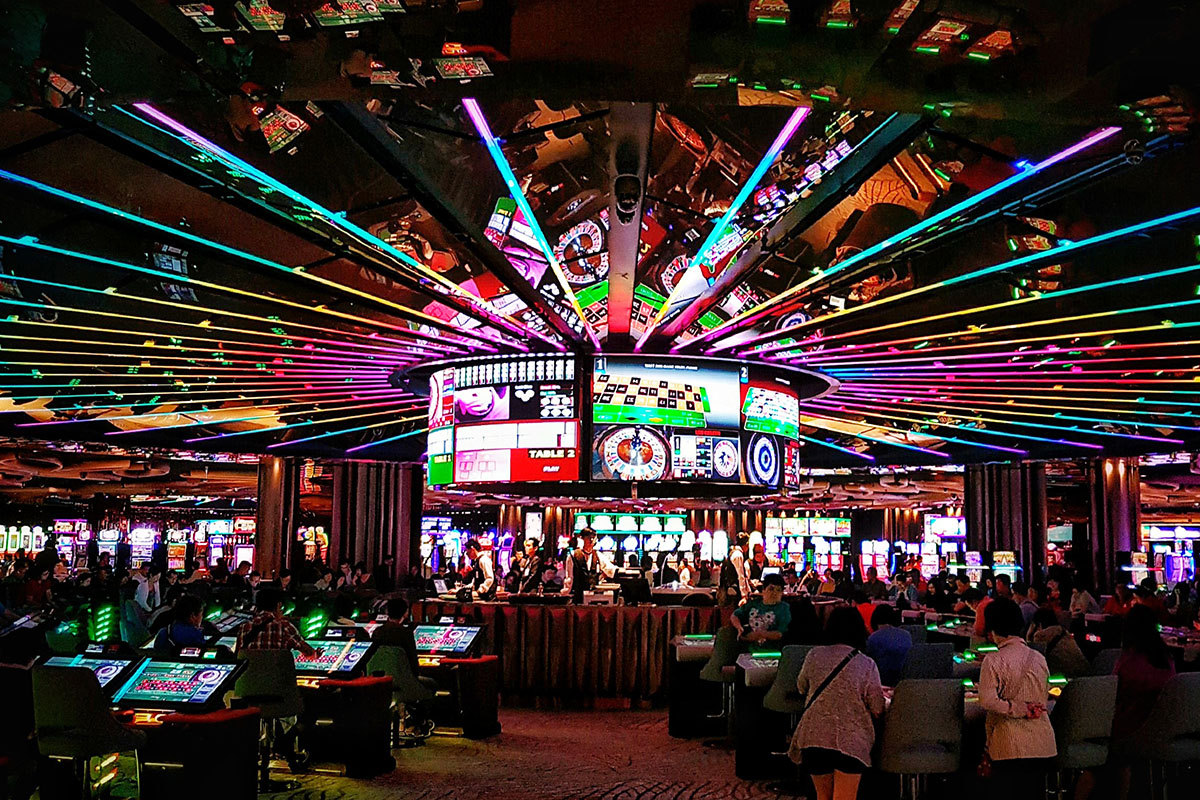
Casino entertainment have long been a staple in human culture, providing not just entertainment but a fascinating reflection of our aspirations, dreams, and concerns. From the turning reels of a slot machine to the skill-based strategies of poker, these games represent a range of human emotions and events. At their core, casino games are not just a chance to make profits; they are a microcosm of life itself, where risk and reward merge and fate can change in an moment.
As players assemble around tables or sit in front of glowing machines, they engage in a tradition that transcends mere betting. These games reflect our innate desires for social interaction, adventure, and the search for fortune. They also unveil deeper truths about human psychology, such as our relationship with fate and the thrill of uncertainty. In exploring casino games, we uncover not only the rules of play but also the rich tapestry of the human story, showcasing our interconnected narratives of hope and reality.
The Mind Behind Gambling
Gambling is intrinsically connected in the psyche of individuals, tapping into various feelings and desires. The excitement of risk-taking is a fundamental aspect that attracts participants, be it it’s excitement of spinning a roulette wheel or the anticipation of drawing a winning hand in a poker game. This rush of adrenaline is frequently likened to other forms of excitement, as the unpredictability of outcomes elicits a distinct psychological response. Players often become entranced by the chance of striking it rich, leading to an irresistible draw toward gambling games.
Another, a crucial component of the psychology behind gambling is the concept of hope and ambition. Participants often nourish dreams of financial freedom and the opulent lifestyle that can accompany winning. This optimism fuels their continued participation in gambling, as it provides a sense of meaning and the conviction that a life-changing win could be just one wager away. The narrative of beating the odds and finding success resonates with many, strengthening their dedication to play and involve themselves with these games.
Lastly, social dynamics play a crucial role in gambling psychology. Casino environments are designed to foster social interaction, where gamblers gather to share the experience of wins and losses. This communal aspect not only enhances enjoyment but also influences behavior, as individuals often imitate the actions of others in their vicinity. The collective approval found in shared excitement can enhance the emotional experience, making casino games a reflection of not just personal desires but also collective engagement within the gambling community.
### Risk and Reward: A Double-Edged Sword
Gambling activities embody the fragile balance between risk and reward that resonates deeply with human nature. The excitement of placing a bet is often accompanied by a rush of adrenaline, as gamblers are confronted with the prospect of a huge payout, yet cognizant of the potential to lose. This twofold experience reflects a core aspect of life: the decisions we face often come with built-in risks, and the chase for gain can push us to take chances we might not normally consider. In this way, casino games reflect real-world choices, enticing gamblers to risk not just their capital, but also their aspirations.
The allure of jackpot prizes and winnings fuels a feeling of positivity, encouraging gamblers to dream of a better future that could emerge from a fortunate turn of the roulette or dealing of a hand. This positive outlook can drive individuals to engage in more daring actions, urging them to take greater risks in search of economic benefit. However, just as in life, the results of these risks can lead to both triumph and despair. BJ88 The stories of both big winners and those who have faced losses everything at the tables demonstrate the random nature of luck and its significant repercussions on our lives.
Ultimately, the interaction of engaging with gambling activities serves as a vivid illustration of the human condition. Every session played is filled with the tension of ambiguity, as players weigh the rewards against the risks. This balance not only highlights the excitement that comes with betting but also reveals the risks that come with the urge for more. As we navigate the complexities of decision-making and results in both the casino and in life, we find that the search for benefit shapes our sense of self and lives in deep ways.
Culture and Isolation in Gambling Environment
Gambling culture is a unique mix of social interaction and individual pursuit, reflecting the tensions of individual experience. Gamblers often come together around games, sharing in the thrill of the game, celebrating wins, and sympathizing over losses. This communal aspect is vital, as it establishes a sense of belonging and camaraderie among varied groups of people. Regular attendees to gaming establishments may form friendships and establish routines, turning the casino into a second home where they feel connected to a greater community of players.
However, the allure of casino activities can also result to isolation. As individuals become engrossed in the thrill of gambling, they may isolate from personal relationships or neglect to engage with the environment outside the gaming space. For some, the search of a windfall can distract from genuine connections, leading to loneliness. The situation of being surrounded people yet experiencing solitary is not uncommon, as the focus shifts from shared enjoyment to the private stakes of each individual’s journey.
This interaction of society and isolation creates a rich mosaic that defines gaming culture. It highlights the complexity of human interactions, where joy and sorrow coexist. Casinos serve as both a refuge for social engagement and a stage for individual struggles, demonstrating how deeply entwined our yearning for connection and the personal quest for fortune can be. In navigating this environment, gamblers confront their own narratives—seeking both the thrill of the wager and the fellowship of fellow players, eventually mirroring the wider spectrum of individual experience.
